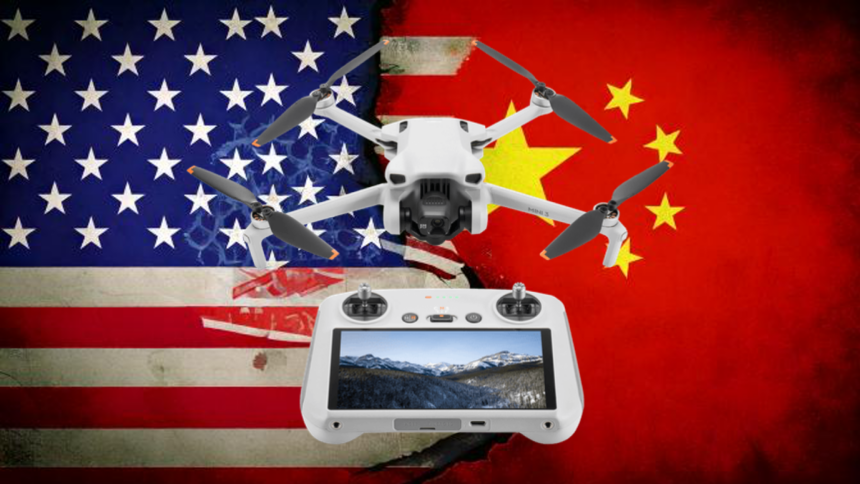DJI, the dominant player in the global consumer drone market, is suing the U.S. Department of Defense (DoD) over its inclusion on the list of companies labeled as having close ties to the Chinese military. This designation, which began in 2022, has had far-reaching consequences for the company, including the loss of business contracts and negative public perception of its employees.
What’s Happening & Why This Matters
Headquartered in Shenzhen, China, DJI controls an estimated 90% of the consumer drone market. The company’s drones are widely used for various civilian applications, particularly in industries such as photography, film, and TV, and are popular among hobbyists. DJI asserts that it has no involvement with military projects or affiliations in any country and has never developed or sold military-grade equipment.
Despite these claims, DJI’s addition to the DoD’s “Chinese Military Companies” list has caused significant business disruptions. The U.S. government prohibits its agencies from conducting business with companies on this list, severely limiting DJI’s ability to operate in the U.S. market. According to DJI, its employees have faced ongoing public harassment and stigmatization since the designation.
The company has now taken legal action, seeking relief in federal court. DJI argues that the DoD’s decision was unwarranted and has caused irreversible damage to its reputation and business. This lawsuit comes at a time when U.S. authorities are ramping up scrutiny of the Chinese manufacturer. For instance, U.S. Customs and Border Protection has recently blocked the import of DJI drones, citing the Uyghur Forced Labor Prevention Act, a law that bans goods linked to forced labor in China.
While DJI denies any military ties, its drones have been found in war zones, including Ukraine, where the military has reportedly purchased millions of dollars’ worth of DJI products. This raises questions about how these drones are being used and who is purchasing them for conflict-related purposes. DJI’s legal challenge against the DoD is the latest development in ongoing tensions between Chinese tech companies and the U.S. government. The defense department’s list of companies with ties to the Chinese military is part of a larger effort to prevent China from accessing advanced technologies. For companies like DJI, being included on this list can have serious consequences, limiting market access and damaging business relationships.
The lawsuit highlights DJI’s frustration over the DoD’s decision and its broader impact on the company’s reputation and operations. While the company insists it has no military involvement, the U.S. government remains firm in its stance. DJI’s legal battle may set the stage for future conflicts between Chinese tech companies and U.S. regulatory bodies.
The geopolitical context adds another layer of complexity. U.S. lawmakers are considering more stringent measures to ban DJI drones altogether — a concern for current DJI drone owners. Even if such measures become law, existing owners may be able to operate their drones, although new sales could be prohibited.
TF Summary: What’s Next?
The outcome of DJI’s lawsuit against the U.S. government will determine its American market prospects. If the company is successful, it could regain access to government contracts and restore its reputation. However, if the lawsuit fails, DJI could face further U.S. restrictions that open the door for competitors to fill the gap in the marketplace. In the interim, U.S. lawmakers continue applying stricter regulations against Chinese companies, with DJI caught in the crossfire.
— Text-to-Speech (TTS) provided by gspeech


